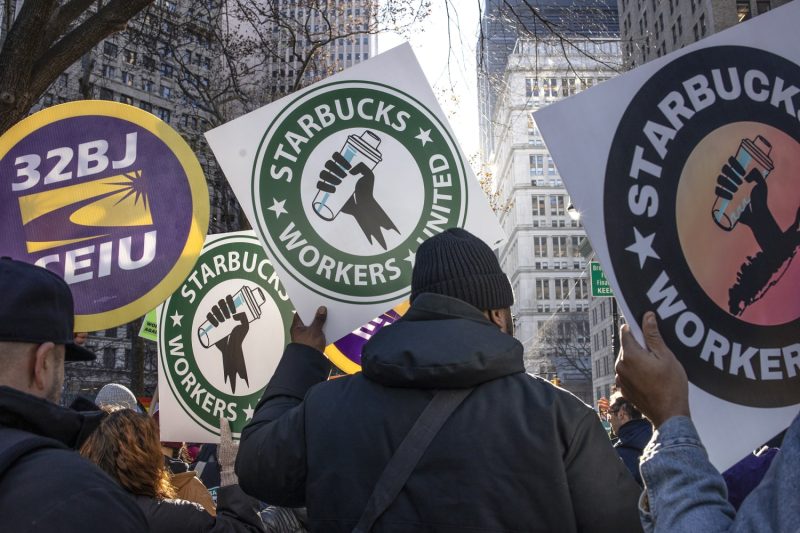In a recent development that has caught the attention of both coffee lovers and labor advocates, new Starbucks CEO Brian Niccol has pledged his commitment to work closely with unions as negotiations continue to progress. This significant shift marks a departure from the company’s historical stance on unionization and signals a new era of collaboration between Starbucks and its employees.
One of the key aspects of Niccol’s approach is his recognition of the important role that unions play in advocating for workers’ rights and ensuring fair treatment in the workplace. By openly acknowledging the value that unions bring to the table, Niccol is signaling a willingness to engage in meaningful dialogue and build a more cooperative relationship with organized labor.
The decision to engage with unions represents a departure from Starbucks’ past resistance to unionization efforts. Historically, the company has taken a firm stance against unionization, citing concerns about protecting its corporate interests and maintaining flexibility in its operations. However, Niccol’s willingness to embrace a more collaborative approach suggests a recognition of the changing landscape of labor relations and a desire to evolve with the times.
For Starbucks employees, Niccol’s commitment to working with unions could mark a significant turning point in their efforts to secure better working conditions and fair treatment. By engaging in negotiations with labor representatives, Starbucks is opening the door to addressing key issues such as wages, benefits, and job security in a more transparent and inclusive manner.
Moreover, the decision to work with unions could have broader implications for the coffee industry as a whole. Starbucks, as a global leader in the coffee retail sector, sets a powerful example for other companies in terms of labor practices and worker engagement. By demonstrating a willingness to collaborate with unions, Starbucks could set a new standard for corporate responsibility and employee empowerment within the industry.
Looking ahead, the success of Starbucks’ collaboration with unions will depend on both parties’ ability to engage in constructive dialogue, identify common goals, and work towards mutually beneficial outcomes. While challenges and obstacles are likely to arise during the negotiation process, the commitment shown by Niccol and Starbucks’ leadership to embrace this new approach bodes well for the prospect of a more harmonious and productive relationship between the company and its employees.
In conclusion, the decision by new Starbucks CEO Brian Niccol to commit to working with unions marks a significant shift in the company’s approach to labor relations. By acknowledging the importance of unions and demonstrating a willingness to engage in dialogue, Niccol is setting a positive example for other companies in the industry and potentially paving the way for improved working conditions and employee empowerment within Starbucks and beyond.
